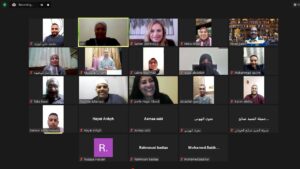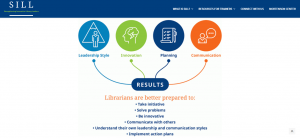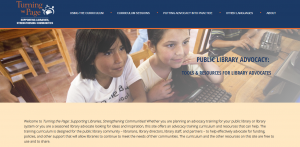The International Network of Emerging Library Innovators- Middle East and North Africa (INELI-MENA) was a unique e-training leadership program funded by Global Libraries Initiatives (GL) at the Bill and Melinda Gates Foundation (BMGF) and conducted by the Arab Federation for Libraries and Information (AFLI); INELI-MENA targeted 31 librarians across the MENA region.
Upon the success of the program, and with the support of AFLI; our innovators took upon themselves to build national networks in their countries in order to deliver what they learned during the training program to their colleagues. National networks were established in Egypt; Sudan, Libya; Tunisia, Palestine from 2018-2021.
As part of AFLI’s role in sustaining INELI-MENA and the national networks, AFLI thought of gathering all the innovators from both INELI-MENA and the national networks in one e-training program entitled SEEDS (Staff E-training on Emerging technology & Developed Services)
The e-training course focused on Emerging Technology and started in Jan. 14th till Mar. 6th 2023. A call was sent to all innovators, 41 applied to join the course, 29 innovators succeeded to finish the course and obtained their certificates, the other couldn’t make it due to their to wok and families’ responsibilities
The course included the following topics: introduction to emerging technologies; emerging technology in libraries, Big Data; Artificial Intelligence; Virtual Reality (VR) & Augmented Reality (AR) -participants were asked to work in teams to complete an action plan to benefit from VR & AR applications in their libraries-; Internet of Things (IOT), and concluded with feedback from the trainees which was very positive, as the skills acquired in this training have direct application to the needs of public libraries in the MENA regions.
Topics of the modules were prepared by Professor Emad Saleh, Head of Librarianship Department, Faculty of Arts, Helwan University. Thanks to INELI-MENA innovators who helped in mentoring the program with me Ruqiya Hussain Hassan (United Arab Emirates); Badiaa Rahmoni (Morocco); Doaa Abdallah & Mustafa Tuhami (Egypt).
It is worth mentioning that AFLI was the 2022 winner of the prestigious EBSCO Information Services Library Staff Development Award for implementing SEEDS program. The award is presented annually to a library organization whose application demonstrates the greatest merit for a program of staff development designed to further the goals and objectives of the library organization.
Photo of the participants from the online graduation Ceremony


